An electrical panel is the main part of a structure that controls and distributes electricity. It has circuit breakers or fuses that regulate the amount of electricity flowing to each circuit. Conversely, a fuse box is an older configuration that uses fuses to protect circuits from overloads.
Electrical panels are more modern and have better safety features since they use circuit breakers rather than fuses for increased protection, even though their functions are similar.
Main Function of an Electrical Panel Compared to a Fuse Box
Electrical Panel: This central distribution station is used to control and distribute electricity across a structure. It has circuit breakers that regulate the electricity flow to various areas of the building.
Fuse Box: Fuse boxes are distribution points, much like electrical panels, but they use fuses rather than circuit breakers to guard against overloads.
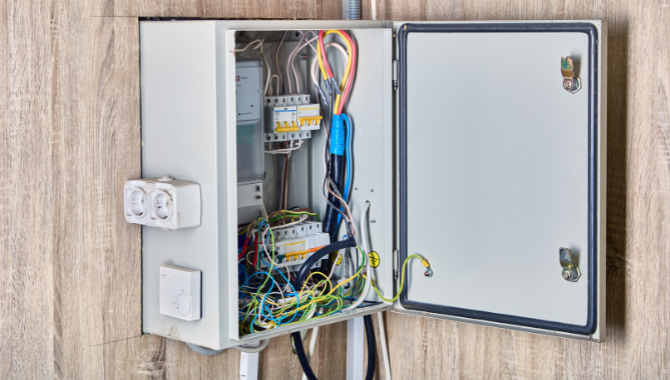
Benefits and Drawbacks of an Electrical Panel
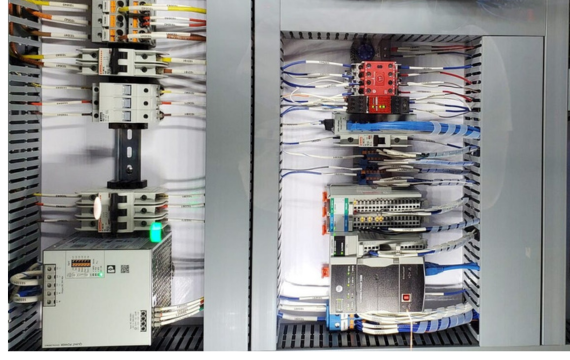
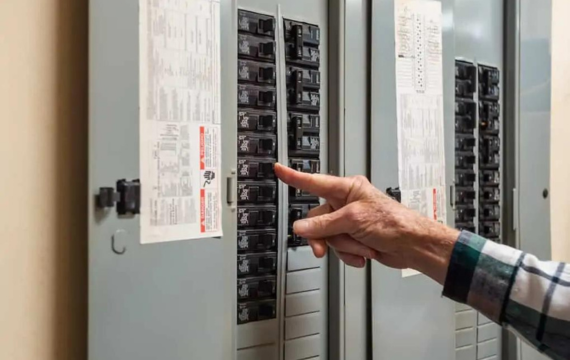
Benefits of an Electrical Panel
- The main hub for distributing electricity is made up of electrical panels.
- Power distribution may be easily managed and controlled at electrical panels.
- Electrical needs change throughout time, and modern electrical panels are made to adapt.
- Circuit breakers or fuses found in electrical panels guard against overloads and short circuits in specific circuits.
- Safety features seen in electrical panels include arc-fault circuit interrupters (AFCIs) and ground-fault circuit interrupters (GFCIs).
- An electrical panel’s circuits can be arranged to distribute power efficiently.
- Electrical laws and standards are complied with when electrical panels are installed correctly.
Drawbacks of an Electrical Panel
- The initial cost of installing an electrical panel and ongoing upkeep might be high.
- Electrical panels require physical space, and their installation locations may be restricted in some circumstances.
- It takes knowledge and experience to comprehend and operate electrical panels.
- There may be a need to upgrade an electrical panel if the electricity demand exceeds the panel’s maximum capacity.
- Overloads can nevertheless happen even with circuit protection measures.
- It is crucial to have professional installation and maintenance performed since improper wiring or overloading circuits in the electrical panel might cause a fire.
- An uninterrupted external power source is necessary for an electrical panel to operate.
Benefits and Drawbacks of a Fuse Box
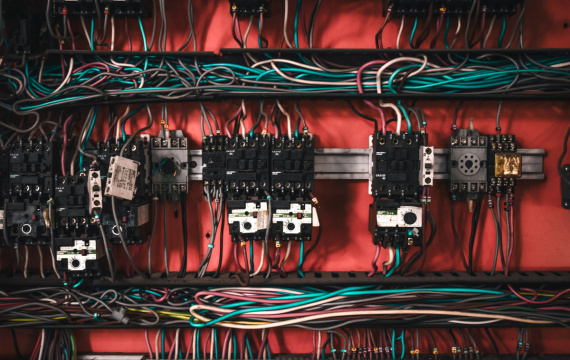
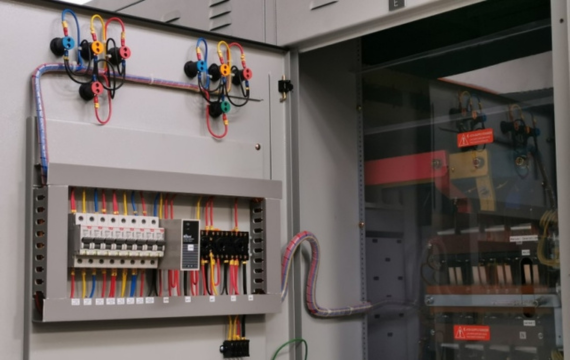
Benefits of a Fuse Box
- In general, fuse boxes are less expensive.
- The design of fuse boxes is simple.
- Fuses can consistently cut the power in the event of an overload or short circuit.
- It’s not too difficult to replace a blown fuse.
- Fuse boxes are more commonly found in older homes and are often easier to maintain.
Drawbacks of a Fuse Box
- Usually, fuse boxes have a finite capacity.
- Even though changing a blown fuse is simple, it can still be inconvenient, particularly if it occurs regularly.
- Advanced features like circuit-specific tripping are absent from fuse boxes.
- Sometimes folks will swap out a blown fuse for a higher amperage fuse.
- Fuse boxes are regarded as antiquated devices.
Differences Between Electrical Panel Vs Fuse Box
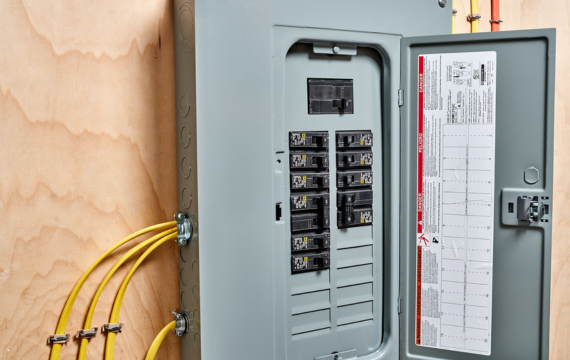
- Electrical panels, usually referred to as circuit breaker panels, are a common fixture in modern residential and business electrical systems.
- To safeguard circuits from overloads and short circuits, circuit breaker panels employ circuit breakers rather than fuses.
- When a defect occurs in the circuit, circuit breakers are switches that trip (open) automatically. Once the problem is fixed, it can be reset.
- If a physical fuse needs to be changed, circuit breaker panels offer greater convenience because the breaker switch can be reset.
- Better safety features are also provided by them, such as the option to turn off specific circuits without disrupting the electrical system altogether.

- An earlier style of electrical distribution system that employs fuses to safeguard circuits is called a fuse box.
- Devices known as fuses have a thin metal strip within that melts when the circuit is overloaded, stopping harm to other electrical equipment and posing no fire risk.
- A specific fuse is attached to each circuit in a fuse box; if there is an overload or short circuit in that circuit, the fuse will blow and need to be replaced.
- Circuit breaker panels have mostly taken the place of fuse boxes in contemporary buildings.
Typical Applications of Electrical Panel

Residential Power Distribution
They aid in the control and maintenance of certain circuits, guaranteeing a dependable and secure power source for outlets, lights, and appliances.
Commercial Buildings
To effectively distribute electricity to computers, HVAC systems, lighting, and other electronic devices, electrical panels are a necessary component of business buildings.
Industrial Facilities
These panels provide dependability and safety while assisting in the distribution and control of power to motors, control systems, and other industrial operations.
Data Centers
Electrical panels are used to deliver power to servers, networking equipment, and other devices in data centers, where a constant power source is essential.
Hospitals and Healthcare Facilities
Vital equipment like life support systems, medical imaging equipment, and basic illumination are distributed power by electrical panels in healthcare facilities.
Educational Institutions
Electrical panels are used by colleges and universities to supply power to their classrooms, labs, administrative offices, and recreational spaces.
Retail Spaces
Power distribution to lighting, HVAC, air conditioning, and electronic point-of-sale devices is controlled by electrical panels in retail settings.
Agricultural Operations
Electricity for irrigation systems, livestock equipment, and processing gear is distributed by farms and agricultural enterprises using electrical panels.
Energy Management Systems
Energy management systems incorporate electrical panels for monitoring and regulating power consumption.
Renewable Energy Installations
Electrical panels control how power from renewable energy sources, such as solar or wind, is integrated into the current electrical grid in installations.
Typical Applications of Fuse Box

Residential Buildings
With separate fuses or circuit breakers safeguarding each circuit, a fuse box distributes electricity to various circuits throughout the house.
Commercial Buildings
Fuse boxes protect against electrical problems and aid in effective power supply management.
Industrial Facilities
To protect costly gear from damage, fuse boxes offer a dependable way to isolate malfunctioning circuits.
Automobiles
Fuse boxes are used by cars, trucks, and other vehicles to safeguard several electrical systems, including automotive engines, lights, and stereos.
Marine Applications
Fuse boxes protect lighting, navigation systems, and other electrical equipment on board.
Telecommunications Equipment
By preventing electrical outages that can interfere with communication services, fuse boxes aid.
Renewable Energy Systems
The dependability of solar panels, wind turbines, and related equipment is greatly dependent on fuse boxes.
Emergency Power Systems
When there is a power outage, fuse boxes make sure that the backup power and main power supply switch on smoothly.
Construction Workplace
In addition to assisting in organizing the distribution of power to various equipment and devices, fuse boxes also aid in ensuring safety and preventing electrical risks.
Event and Outdoor Spaces
Fuse boxes are utilized for temporary power supply for sound systems, lighting, and other electrical requirements during events, fairs, or outdoor spaces. By preventing electrical problems, they improve safety.
Electrical Panel
- Makes use of circuit breakers, which are switches that trip on their own to cut off the electricity when an overload or short circuit occurs.
Fuse Box
- To protect against overloads, this device uses fuses, which are little wires that melt when exposed to excessive amounts of energy.
Yes, electrical panels provide additional safety features and convenience.
Panels frequently incorporate sophisticated features like ground fault circuit interrupters (GFCIs) for increased safety, however, circuit breakers are easily reset after tripping.
Contrary to popular belief, fuses are more straightforward devices that are sometimes easier to replace.
The convenience of resetting breakers frequently overcomes this benefit, though, as modern electrical panels are now quite user-friendly.



